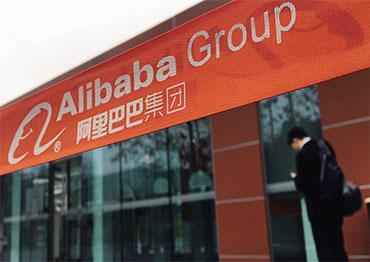The shift in the authorities’ regulatory approach is seen as a direct response to the transformation of the internet sector.
“Now the internet industry is strong enough, and the government does not want it to grow unchecked or to take control of traditional industry,” said Fei Pei, an industry analyst. “What the government wants them to do is take on more economic and social responsibilities.”
“The recent regulatory moves indicate that the government’s focus has shifted from increasing efficiency to promoting fairness, as the authorities move to protect the interests of groups that have less negotiating power, including small- and medium-sized businesses and ordinary people,” said a report released by Shanghai-based brokerage firm Orient Securities in December.
The change in regulatory approach can be traced to January 2020, when China for the first time released a proposed revision to its anti-monopoly law that included the internet industry. Based on the proposed law, companies could be subject to a fine of up to 10 percent of their annual revenue for violating the law.
But the recent sweeping proposals appear to be more expansive in scope. In a politburo meeting chaired by Chinese President Xi Jinping on December 11, the central leadership raised a new key phrase, “the prevention of disorderly expansion of capital,” which quickly became a keynote concept in the authorities’ anti-monopoly agenda.
In the Central Economic Work Conference (CEWC) held on December 18, 2020, a keynote annual meeting to draft China’s economic priorities for the coming year, the importance of the prevention of disorderly expansion of capital was highlighted again. Combined with “curbing monopolistic behavior,” it is listed as one of eight major policy priorities for 2021.
In past years, capital expansion was a major strategy for China’s tech giants, especially Alibaba and Tencent, China’s dominant internet players. According to a report in New Fortune magazine in November 2020, Alibaba and Tencent have established what they call “digital ecosystems” that are worth 10.8 trillion yuan (US$1.65t) and 11.8 trillion yuan (US$1.81t), roughly a 10-fold increase from five years ago.
Indeed, there are signs that internet companies’ capital expansion and acquisitions will be subject to more strict scrutiny. On December 14, the SAMR fined Alibaba and two other internet companies 500,000 yuan (US$76,400) each for not properly making declarations to authorities about past acquisitions.
The market watchdog also said that it was investigating the merger of Huya Inc and DouYu International, two Tencent-backed online game streaming platforms which collectively control more than 80 percent of China’s online game streaming market.
At the end of November, Alibaba and Tencent reportedly suspended their plan to acquire iQiyi, a Netflix-like video platform, due to the prospect of stricter regulation.
In a statement regarding the regulator’s recent summoning of Ant Group on compliance issues, Pan Gongsheng, deputy governor of China’s central bank, said the company must “return to its origins in online payments” and prohibit irregular competition, a sign that cross-industry expansion will not be welcome in the future.
According to Professor Zhao Yanjing from Xiamen University in Fujian Province, platform companies’ vertical expansion should be strictly regulated. He warned that if platform companies are allowed to build their own digital cross-industry empires, they will become government-like regulators of their markets and will bend the rules to serve their own interests.
Zhao argued that the global challenge to regulate tech is to solve the paradox that high-level valuations of platform companies come from big data that does not belong to them but to the people.
The Wall Street Journal reported on January 5 that considering Ant Group’s data collection as an unfair competitive advantage over other players, the regulators are seeking to require Ant Group to share its consumer data with the People’s Bank of China, either through a nationwide credit-reporting system or a credit-rating company controlled by the bank.
There was also speculation that Ant Group will be split into two companies, with one taking over its financial business which will be subject to existing financial regulation, and the other taking over its high-tech businesses such as cloud computing and big data.
So far, it remains unclear how far China will go regarding the fate of Ant Group. But the consensus is clear now that the era of the runaway expansion of China internet firms is over.

 Old Version
Old Version